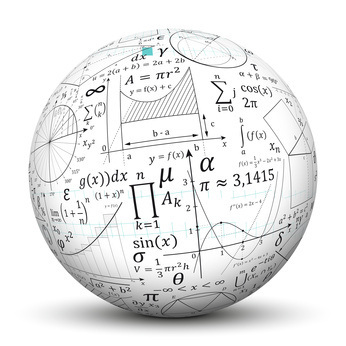On the use of mathematics in economics Balliol Croft, Cambridge 27. ii. 06 My dear Bowley, I had a growing feeling in the later years of my work at the subject that a good mathematical theorem dealing with economic hypotheses was very unlikely to be good economics: and I went more and more on the rules — (1) Use mathematics as a short-hand language, rather than as an engine of inquiry. (2) Keep to them till you have done. (3) Translate into English. (4) Then illustrate by examples that are important in real life. (5) Burn the mathematics. (6) If you can’t succeed in 4, burn 3. This last I did often … Your emptyhandedly, Alfred Marshall As social researchers, we should never equate science with mathematics and statistical calculation. All science entail
Topics:
Lars Pålsson Syll considers the following as important: Economics
This could be interesting, too:
Lars Pålsson Syll writes Schuldenbremse bye bye
Lars Pålsson Syll writes What’s wrong with economics — a primer
Lars Pålsson Syll writes Krigskeynesianismens återkomst
Lars Pålsson Syll writes Finding Eigenvalues and Eigenvectors (student stuff)
On the use of mathematics in economics
Balliol Croft, Cambridge
27. ii. 06
My dear Bowley,I had a growing feeling in the later years of my work at the subject that a good mathematical theorem dealing with economic hypotheses was very unlikely to be good economics: and I went more and more on the rules — (1) Use mathematics as a short-hand language, rather than as an engine of inquiry. (2) Keep to them till you have done. (3) Translate into English. (4) Then illustrate by examples that are important in real life. (5) Burn the mathematics. (6) If you can’t succeed in 4, burn 3. This last I did often …
Your emptyhandedly,
As social researchers, we should never equate science with mathematics and statistical calculation. All science entail human judgement, and using mathematical and statistical models don’t relieve us of that necessity. They are no substitutes for doing real science.
 Mathematics is one valuable tool among other valuable tools for understanding and explaining things in economics.
Mathematics is one valuable tool among other valuable tools for understanding and explaining things in economics.
What is, however, totally wrong, are the utterly simplistic beliefs that
• “math is the only valid tool”
• “math is always and everywhere self-evidently applicable”
• “math is all that really counts”
• “if it’s not in math, it’s not really economics”
And in case you — still — think this critique is some odd outcome of heterodox idiosyncrasy, well, maybe you should think twice …
 In mathematics, the deductive-axiomatic method has worked just fine. But science is not mathematics. Conflating those two domains of knowledge has been one of the most fundamental mistakes made in modern economics. Applying it to real-world open systems immediately proves it to be excessively narrow and hopelessly irrelevant. Both the confirmatory and explanatory ilk of hypothetico-deductive reasoning fails since there is no way you can relevantly analyze confirmation or explanation as a purely logical relation between hypothesis and evidence or between law-like rules and explananda. In science, we argue and try to substantiate our beliefs and hypotheses with reliable evidence. Propositional and predicate deductive logic, on the other hand, is not about reliability, but the validity of conclusions given that premises are true.
In mathematics, the deductive-axiomatic method has worked just fine. But science is not mathematics. Conflating those two domains of knowledge has been one of the most fundamental mistakes made in modern economics. Applying it to real-world open systems immediately proves it to be excessively narrow and hopelessly irrelevant. Both the confirmatory and explanatory ilk of hypothetico-deductive reasoning fails since there is no way you can relevantly analyze confirmation or explanation as a purely logical relation between hypothesis and evidence or between law-like rules and explananda. In science, we argue and try to substantiate our beliefs and hypotheses with reliable evidence. Propositional and predicate deductive logic, on the other hand, is not about reliability, but the validity of conclusions given that premises are true.
